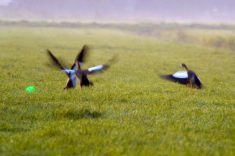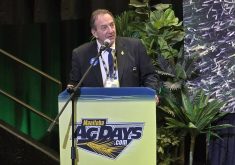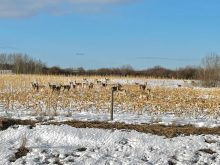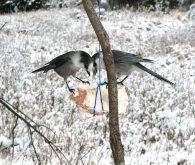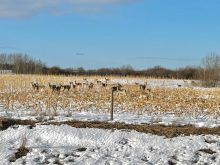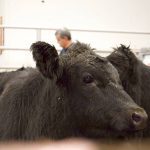The Manitoba Metis Federation has indicated it’s prepared for a legal battle over members’ constitutional rights to hunt moose.
“We are standing firm on our commitment to a balanced approach for Métis harvesters seeking moose meat to feed their families and elders, while limiting the number of animals taken,” said MMF president David Chartrand in an Oct. 9 news release.
“Any Métis harvester card holder with a drawn tag who is charged by this premier will be protected by your Métis Government,” the release says.
Read Also
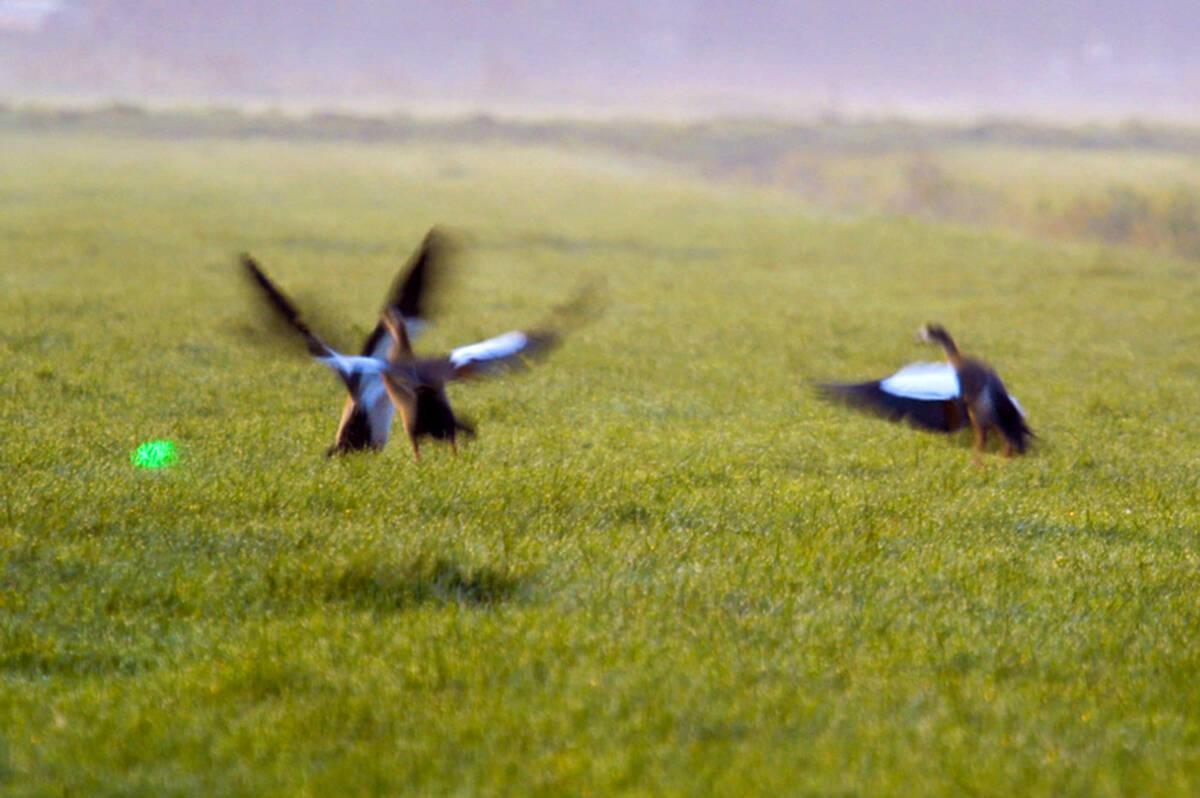
Canada’s import ban on Avix bird control system ruffles feathers
Canadian producers’ access to Bird Control Group’s Avix laser system remains blocked despite efficacy studies and certifications, as avian flu deaths rise.
This came after the province announced it would extend a ban on moose hunting in designated conservation areas including the Duck and Porcupine Mountain areas and various other game hunting areas (GHAs). The moratorium has been in place since 2011 to conserve a dwindling number of moose.
Along with human impacts, parasites and disease, habitat losses, predation and climate change have all negatively affected moose populations, the province said.
In January, an aerial population survey for Porcupine Mountain found an estimate of 997 moose with a range of 837 to 1,157 and found an improved bull-to-cow ratio since the closing of the area to all moose hunting, according to the province.
A survey of the Duck Mountain area found an estimate of 2,171 moose with a range of 1,841 to 2,519.
These estimates are below historic levels, but higher than estimates from the early 2000s, indicating slow population growth.
Provincial flip-flop
At the end of September, MMF announced it would partially reopen Porcupine Mountain, Duck Mountain and GHA 26 for Métis hunters to harvest moose.
This was based on indications from the province it would allow up to 60 moose tags for 2020, MMF said on Oct. 9. MMF had acquired 26 tags.
MMF told Métis citizens that groups of at least four hunters could request a moose tag for this area with the understanding they would share harvested moose with elders and vulnerable citizens.
“This measure is particularly important as it will provide additional support throughout the pandemic,” said Chartrand. “We want to ensure that Métis hunters are able to provide for the needs of their loved ones and those of our elders and our vulnerable citizens.”
The ban announcement represented a provincial pivot, MMF said.
“In response to the MMF’s limited opening of harvesting 26 moose in these areas, the government of Manitoba is now doing a 180-degree pivot on its proposed moose closure reopening,” stated MMF Minister of Natural Resources and Citizenship Leah LaPlante in a news release.
“We have received letters, the most recent being dated September 28, 2020, that indicate there were full intentions of Manitoba reopening ‘an authorized, limited, bulls-only moose harvest for the Duck and Porcupine Mountain… effective November 1 through December 15, 2020,’” said LaPlante.
MMF said it agreed to the 2011 ban, but the continuation was done without proper consultation. The province has ignored Manitoba Métis’s constitutional rights by neither consulting with them or giving them an accommodation despite a letter from MMF requesting consultation in 2019, MMF said.
The Southern Chiefs Organization also said it was disappointed with the provincial government in an Oct. 1 news release and said the province had also failed to consult with the SCO.
“The province of Manitoba cannot create its own processes for determining the harvesting eligibility of communities whose rights are protected,” said SCO Grand Chief Jerry Daniels. “It sets a dangerous precedent when the province thinks it has the authority to pick and choose which First Nations’ Treaty Rights it respects and which it ignores when it comes to harvesting.”
SCO did not indicate if it would encourage members to hunt despite the ban, and declined to comment further when the Manitoba Co-operator contacted it.
Hunters not welcome
Moose hunters would not be welcome in GHA 26, which falls within the traditional territory of Sagkeeng First Nation, the Sagkeeng chief and council said in a statement Oct. 5.
“The Sagkeeng First Nation maintains that the MMF does not have the right or authority to fully reopen GHA 26 to the harvesting of moose or even hunt in the area,” the statement says, citing the First Nation’s rights as the traditional landholders of that area.
“Current hunting restrictions have been in place as a conservation measure… to ensure the long-term sustainability of a resource that is of the utmost importance to Sagkeeng First Nation and its members,” they wrote, adding they would take “all steps necessary” to ensure preservation of moose in that area.
The Indigenous People Alliance released a statement reiterating Métis and Indigenous rights to hunt and calling for the province to open further discussion into the matter.
IPAM president Ernie Blais said MMF’s decision to establish a limited moose harvest was done without consultation with Métis members of IPAM but committed to working with “all Métis and non-Indigenous to come to an understanding, especially is (sic) the Manitoba Wildlife Federation.”
Manitoba Wildlife Federation praised the hunting ban extension for putting moose populations first in a news release. Previously the organization had expressed outrage when the Manitoba Metis Federation allocated tags to Métis hunters, saying “MMF has no legal authority to reopen hunting in closure areas,” in a September 30 news release.
“ALL (sic) user groups need to abide by ONE (sic) management strategy to ensure sustainable wildlife populations,” MWF wrote.
In an Oct. 9 press conference, Minister of Agriculture and Resource Development Blaine Pedersen told media that the province appreciates Indigenous people’s right to hunt, but it was the moose that would lose if hunting was reopened.
“If we don’t act, there won’t be any more,” he said.
Pedersen did not explain why the province changed its mind on allowing a limited moose hunt this year, and insisted the province had consulted with MMF and had records of doing so.






